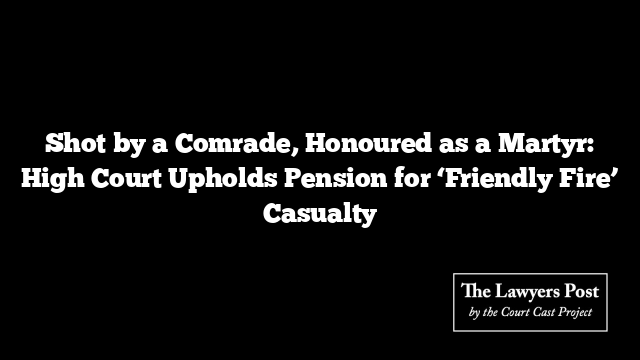In a verdict that speaks volumes about dignity in death, the Punjab and Haryana High Court has ruled that a soldier killed by a fellow soldier during an active military operation must be treated no differently from one killed by enemy fire.
The judgment came in a case surrounding the tragic death of an Indian Army personnel during Operation Rakshak in 1991. Though the bullet came not from across the border but from a comrade’s firearm, the Court affirmed his status as a “battle casualty” — and with it, the rightful pension benefits owed to his surviving family.
A bench of Justices Anupinder Singh Grewal and Deepak Manchanda took strong exception to the Central government’s resistance, which cited a 25-year delay in the mother’s pension claim. The Court wasn’t moved. “Deployment in a military operation, regardless of whose trigger ends a life, cannot be a reason to deny honour or benefits,” the bench observed.
At the heart of the dispute was the government’s challenge to a February 2022 order by the Armed Forces Tribunal, which had instructed the Centre to consider the soldier’s mother for a liberalised family pension. The Court found no fault in the Tribunal’s reading of the Ministry of Defence’s 2001 guidelines, which clearly extend pension rights to operational duty deaths — even those under the grim label of “friendly fire.”
With the government’s plea dismissed, the judgment stands as a quiet but firm recognition: a soldier’s sacrifice deserves honour, no matter where the bullet came from.





